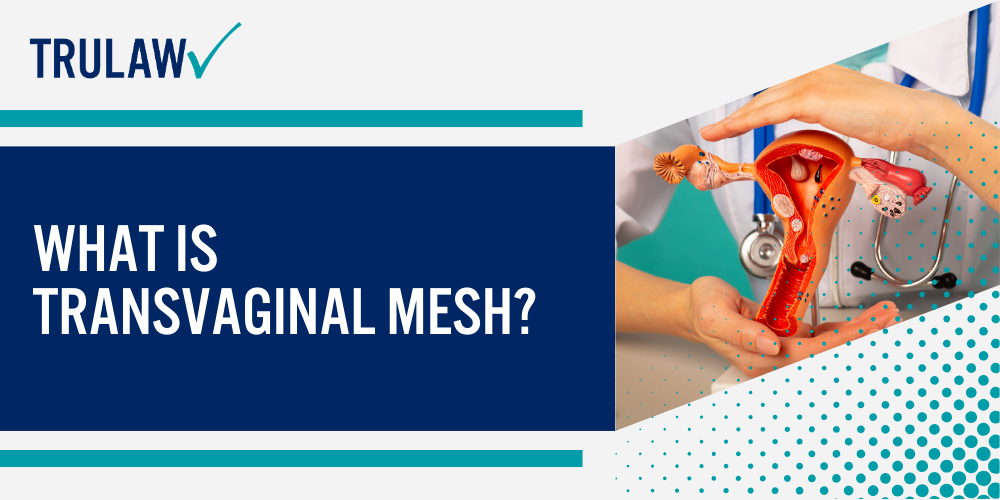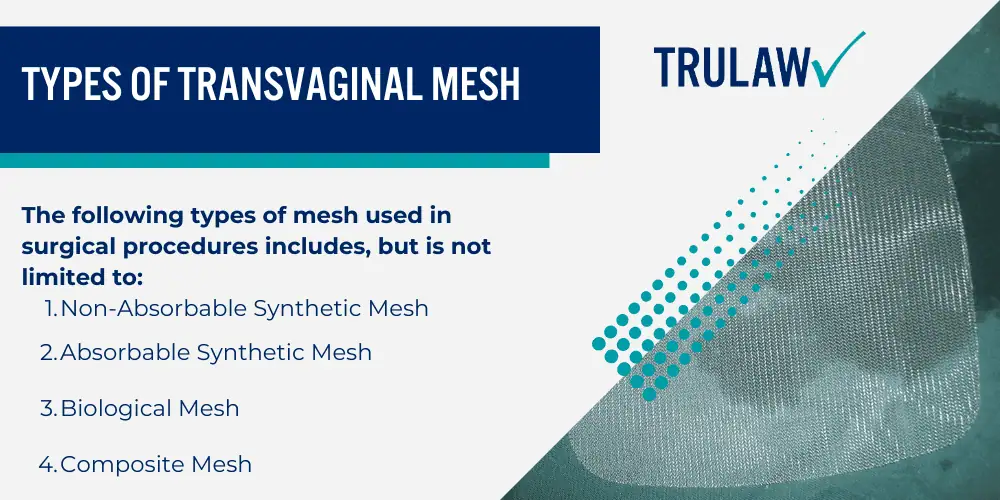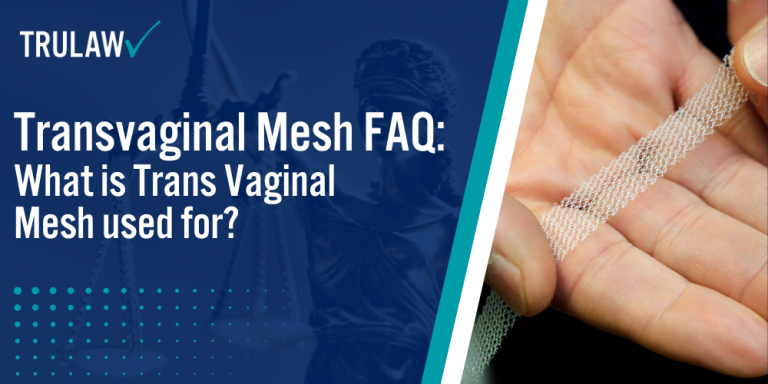Transvaginal mesh is a medical device, typically made from synthetic materials or biological tissue, designed to provide support for weakened pelvic organs in women.
Its main purpose is to assist with conditions such as pelvic organ prolapse (POP) and stress urinary incontinence (SUI).

This mesh comes in several types, each specifically addressing different needs and procedures.
Several manufacturers produce these meshes under various brand names.
Organ Prolapse and Stress
Transvaginal mesh functions as a net-like implant used in surgical procedures. This medical device works to repair weakened or damaged tissue in the pelvic area or bladder of a woman.
The design offers additional support to treat pelvic organ prolapse as well as conditions such as stress urinary incontinence. Despite recent FDA restrictions, transvaginal mesh still plays an essential role in many pelvic surgeries not associated with prolapse repairs.
Prolapse and Stress urinary incontinence
Transvaginal mesh serves a critical role in women’s health, primarily dealing with stress urinary incontinence and pelvic organ prolapse.
These conditions often occur after childbirth, menopause, or a hysterectomy and can cause discomfort or even pain in daily life.
Women who struggle with the burdens of these medical circumstances find relief through the use of transvaginal mesh.
The primary objective of this surgical procedure is to provide support to weakened pelvic organs.
The versatility of transvaginal mesh allows physicians to employ it individually or combine it with other surgical procedures treating urinary incontinence.
This supportive device qualifies as safe by FDA standards; thus ensuring its solid positioning and anchoring without inducing significant complications.
Types of Transvaginal Mesh
Understanding the varieties of transvaginal mesh is essential for making informed healthcare choices.

The following types of mesh used in surgical procedures includes, but is not limited to:
- Non-Absorbable Synthetic Mesh: This type is made from synthetic materials that permanently stay in the body, providing long-term support to weakened tissues.
- Absorbable Synthetic Mesh: Over time, your body gradually absorbs this synthetic mesh. It temporarily supports damaged tissues as they heal.
- Biological Mesh: Derived from animal tissue, usually pig or cow, that’s been disinfected for safe medical use. This organic mesh also gets absorbed by your body over time.
- Composite Mesh: A combination type using different materials like synthetic and biological components.
Manufacturers and Brands
Numerous companies manufacture transvaginal mesh, contributing to a vast range of brands and products.

While this list isn’t exhaustive, it provides an idea of the diversity in the market:
- Boston Scientific
- Johnson & Johnson
- Bard Medical Division
- Coloplast Corp.
- American Medical Systems










